The Faculty of Foreign Languages
Bachelor’s Degree
035 Philology (Germanic Languages and Literature (Translation included), for the major of English) – “Philology: English and German Languages, English and German Literature (Translation included)”
035 Philology (German Languages and Literature (Translation included), for the major of German) – “Philology: German and English Languages, German and English Literature (Translation included)”
035 Philology (Romance Languages and Literature (Translation included), for the major of French) – “Philology: French and English Languages, French Literature and English Literature (Translation included)”
014.02 Secondary Education (Language and Literature ) – “Secondary Education: Language and Literature (French)
014.02 Secondary Education (Language and Literature ) – “Secondary Education: Language and Literature (Russian, English )”
014.02 Secondary Education (Language and Literature ) – “Secondary Education: Language and Literature (Romanian)
Master’s Degree
014 Secondary Education 014.02 Language and Literature (English)
014 Secondary Education 014.02 Language and Literature (German)
014 Secondary Education 014.02 Language and Literature (Russian)
014 Secondary Education 014.02 Language and Literature (French)
|
The Faculty of Ukrainian Philology and Social Sciences
Bachelor’s Degree
032 History and Archeology – “History and Archeology: History. Historical and Cultural Heritage Protection”
032 History and Archeology – “History and Archeology: History. European Studios (with the knowledge of English)”
014 Secondary Education (History) – “Secondary Education: History, Fundamentals of Law and Economics”
014 Secondary Education (History) – “” Secondary Education: History “”
081 Law – “Law”
014 Secondary Education – “Secondary Education: Ukrainian Language and Literature; English Language and Literature (English) »
014 Secondary Education – “Secondary Education: Ukrainian Language and Literature; Practical Psychology »
014 Secondary Education – “Secondary Education: Ukrainian Language and Literature”
Master’s Degree
014 Secondary Education (History) “Secondary Education: History. Ukrainian Studies”
014 Secondary Education – 014.01 Ukrainian Language and Literature
035 Philology – 035.01 Ukrainian Language and Literature
032 History and Archeology – “History. Historical Tourism Studies”
053 Psychology
Doctor of Philosophy
032 History and Archeology “History and Archeology: History”
|
Pedagogical Faculty
Bachelor’s Degree
014 Secondary Education 014.11 Physical Culture – “Secondary Education: Physical Culture”
014 Secondary Education 014.11 Physical Culture – “Secondary Education: Physical Culture, National Defense ”
017 Physical Culture and Sport – “Physical Culture and Sport, Coaching and Teaching Activities”
Master’s Degree
013 Primary Education – “Primary Education. Out-of-School Education”
012 Preschool Education – “Preschool Education. Inclusive Education”
231 Social Work – “Social Work. Social Pedagogy”
231 Social Work – “ Social Work. Social Rehabilitation”
|
The Faculty of Management, Administration and Information Activities
Bachelor’s Degree
014.10 Secondary Education (Labor Training and Technologies) – “Secondary Education: Labor Training, Design and Technology, Physical Culture”
014.10 Secondary Education (Labor Training and Technologies) – “Secondary Education: Labor Training and Technologies, Informatics”
014.10 Secondary Education (Labor Training and Technologies) – “Secondary Education: Labor Training and Technologies. Language and Literature (English)”
014.10 Secondary Education (Labor Training and Technologies)- “Secondary Education: Labor Training and Technologies”
014.09 Secondary Education (Informatics) – “Secondary Education: Information Sciences”
242 Tourism – “Tourist activities (including use of the English language)”
242 Tourism – “Tourism: Tourist Activities”
Master’s Degree
014 Secondary Education – 014.10 Labor Training and Technologies. Technical and Computer Graphics
076 Entrepreneurship, Commerce and Exchange Activities – “Economics and Enterprise Management. Project Management and Consulting”
|
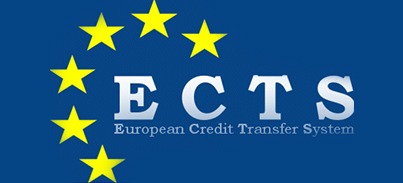 GENERAL INFORMATION
GENERAL INFORMATION
1.Name and address
Name: Izmail State University of Humanities.
Short name: ISUH
Аddress: 12, Repin str., 68610, Izmail, Odessa region, Ukraine.
University
Rector’s reception phone: +38 04841 6-30-01
Contacts
E-mai: idgu@ukr.net
Website: http://idgu.edu.ua
2.About ISUH/University
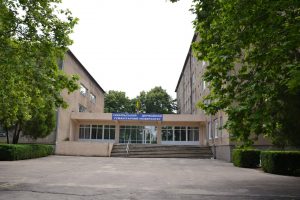
ІSUH is a higher education institution based on state ownership, subordinated to the Ministry of Education and Science of Ukraine. It was established by the Cabinet of Ministers of Ukraine Decree No. 92-r dated March 1, 2002, with the purpose of providing educational services related to higher education at the level of qualification requirements for a Bachelor’s degree and Master’s degree
The educational activities at Izmail State University of Humanities are carried out in accordance with the license of the Ministry of Education and Science of Ukraine, the Statement of coordination of the list of specialties, in which degree-seeking students for the degree of Junior Bachelor, Bachelor, Master, Doctor of Philosophy and licensed number of students of ISUH are trained.
3.University Administration
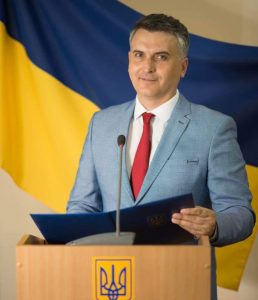
Rector of ISUH is Kichuk Yaroslav Valeriiovych, Doctor of Education, Professor (Order of the Ministry of Education and Science of Ukraine dated June 16, 2015, No. 244-K).
Rector of ISUH holds office hours for public on personal matters every Tuesday, prior registration is required. Academic building № 1, Room 203.
The beginning of reception is at 2 pm. Prior registration is by phone: (04841)-6-30-01
First vice-rector– Koltsun Nataliia Mykhailivna, PhD in Philology, Associate Professor.
Academic building № 1, Room 204.
Vice-rector for Science and Pedagogical Work – Tsyganenko Liliia Fedorivna, Doctor of Historical Sciences, Professor.
Academic building № 1, Room 209.
4.Academic Calendar
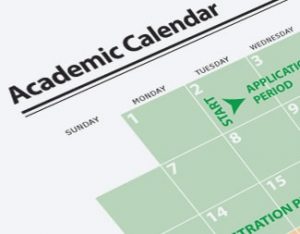
The educational process schedule determines the calendar terms of terms, academic weeks, weeks of independent work, weeks of practical training, examination sessions, vacations for each academic year by a certain educational program, as well as preparation of qualification works and final certification of degree-seeking students.
The educational process schedule at the University for various forms of training, terms of training and educational training programs is annually developed by the curriculum and instruction department of the University and is approved by the academic council of the University, proceeding from the following positions:
– autumn session, during which theoretical studies are conducted;
– winter test-exam session, in which examinations are combined with theoretical training;
– summer examination session.
Theoretical training is carried out in three buildings of the university at the address:
5.List of proposed programs
At the university, the training of specialists is carried out according to the relevant educational and professional, educational and scientific programs at the levels of higher education, which include the award of a corresponding degree of higher education:
A Junior Bachelor is a vocational degree obtained at the initial level (short cycle) of higher education and awarded by the University upon a degree-seeking student’s successful completion of a vocational program of study comprised of 120-150 ECTS credits.
The workload of a vocational program of study for obtaining a junior bachelor degree on the basis of a junior specialist degree is 90 credits.
A person has the right to obtain a junior bachelor degree, provided that he/she has obtained a complete secondary education.
Bachelor is a degree acquired at the First level of higher education, and is awarded by a higher education institution upon a degree-seeking student’s successful completion of an educational and professional program amounting to 240 ECTS credits.
The workload of the educational and professional program for obtaining a bachelor degree after having been awarded a relevant junior bachelor degree is 120 ECTS credits.
A person has the right to obtain a bachelor degree provided that he/she has completed a general secondary education or after having been awarded a relevant junior specialist (junior bachelor) degree.
Master is a degree acquired at the Second level of higher education, and is awarded by a higher education institution upon successful completion of a relevant educational program. A master degree is acquired through an educational and professional program. The workload of the educational and professional program for obtaining a master degree is 90 ECTS credits.
A person has the right to obtain a master degree after having been awarded a bachelor degree (an education and qualification level of a specialist).
The doctor of philosophy is an educational and, at the same time, the first degree obtained at the Third level of higher education after having been awarded a master degree. The degree of Doctor of Philosophy is awarded by a specialized academic board upon a successful completion of the corresponding educational and scientific program and public defense of the dissertation in the specialized academic board.
A person has the right to obtain a doctor of philosophy degree after having been awarded a master degree (an education and qualification level of a specialist).
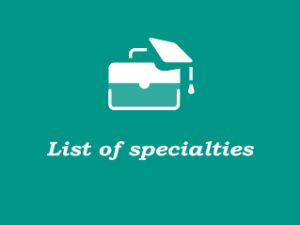 List of specialties
List of specialties
Pedagogical faculty
The Faculty of Foreign Languages
The Faculty of Ukrainian Philology and Social Sciences
The Faculty of Management, Administration and Information Activity
6.Requirements for admission and training
Admission to ISUH at all educational levels is carried out on a competitive basis, regardless of the sources of funding for training on the basis of the Rules of admission to ISUH in compliance with the Conditions of admission to higher education institutions of Ukraine, approved by the orders of the Ministry of Education and Science of Ukraine and registered with the Ministry of Justice of Ukraine.
The organization of applicants’ admission to the institution of higher education is carried out by the Admission Committee of ISUH. All issues related to admission to higher education institutions are resolved by the Admission Committee at the meetings of the Admission Committee. The decisions of the Admission Committee are published on the official website of ISUH.
All persons receiving higher education at ISUH have equal rights and obligations.
ISUH is an educational institution with the state language of instruction. All entrance tests and competitive selections, except a foreign language test, are carried out in Ukrainian.
7.Organization of the credit mobility recognition and pre-training process
Recognition of the results of previous studies at the University is based on a fundamental principle, without forcing the degree-seeking student to study the same subject twice. Each degree-seeking student forms his / her competences, regardless of where and how he / she received them, and without compromising the quality of education and educational qualifications.
Transfer of educational achievements from other universities is carried out according to procedures and ECTS documents (application form of the student, training agreement, transcript of records).
8.Principles of assigning ECTS credits (institutional framework of credits)
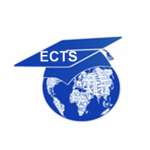
The educational process at ISUH is based on the principles of the European credit transfer-accumulation system. Accounting of academic time, the proportion of disciplines in the curriculum and the amount of knowledge gained at the University is estimated in conventional units – credits. The total number of ECTS credits of training specialists with a bachelor degree is 240, with a master degree is 90. One credit corresponds to 30 academic hours of classroom studies and independent work to master the discipline. The number of disciplines within the academic year is no more than 16, and in the term is no more than 8. The number of summative assessments in the form of an exam within one term is no more than 4. The total amount of a discipline is a minimum of 4 ECTS credits. The amount of ECTS credits planned for the study of the discipline within one term is usually 30 ECTS credits.
The ECTS system is based on the evaluation of all types of student’s work necessary to achieve the goal specified in the curriculum: attending lectures, preparing and participating in seminars and practical classes, independent work, exams, internships, preparation and defence of qualification works.
9.Information on Advisory assistance given to degree-seeking students
A degree-seeking student can get an advisory assistance in the Dean’s office of the faculty, at the Department and in the curriculum and instruction department of the University. Each faculty of the University has an academic mobility curator for each specialty.
In the Dean’s office of the faculty a degree-seeking student can access information about: class schedules; academic rating; the number of completed credits; scholarships: academic, ordinary, social, personal; student’s individual plan of learning a discipline; transfer credit courses; an academic leave; internship; expulsion from the University, renewal training and transfer to another specialty or another form of study.
At the Department, the applicant can get information about the curriculum of a particular specialty; student’s individual plan of learning a discipline; selection of topics for a course-paper, qualification works; having practice.
Relevant data are available on the webpage of each faculty and Department.
10.Organization of the educational process
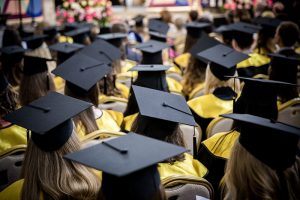
The organization of the educational process is determined by the working curriculum and schedule of classes approved by the first Vice-rector of the University. The process of teaching disciplines is based on the logical and structural scheme, according to which the study of a new specific discipline should have been provided with the knowledge gained from the study of previous disciplines. All fundamental disciplines are planned in such a way that each discipline includes a lecture and practical component of the course. All disciplines and practices are provided with syllabi of study. The content of the syllabi meets the requirements of the educational program and curriculum. In the specified terms before the beginning of a term the schedule of classes is made, and in a month before the end of a term schedules of test and examination sessions are set up. Each term the teaching staff of the Department carries out comprehensive tests to check the level of students’ knowledge after studying each discipline. Complex tasks in the form of tests provide an opportunity to test the theoretical knowledge of the disciplines and the ability to use them for solving practical problems. The departments of the University practice various forms of independent work for students: preparation of written and oral assignments for classroom studies; work with dictionaries; study of primary sources; making reports on specific sections of disciplines; independent study of certain sections of disciplines and the like.
The organization of the educational process in ISUH is carried out on the basis of the following provisions:
Regulations on the organization of the educational process;
Regulation on the system of internal quality assurance of educational activities and higher education;
Regulation on the organization of independent, individual and advisory work;
Regulation on the procedure for assessing the level of students’ academic achievements within ECTS conditions;
Regulations on training according to the individual schedule of full-time students;
Regulations on the academic ranking of students;
Regulations on transfer, renewal and expulsion of students;
Regulations on transfer of students to vacant places of the state order;
Regulations on the order of the formation and organization of work of the Certifying Commission;
Regulations on the qualification works;
Regulations on course papers;
Regulations on the system of prevention and detection of academic plagiarism;
Regulations on the Academic Council;
Regulations on Scientific and Methodological Council;
Regulations on the Academic services office;
Regulations on the organization of editorial and publishing work, the conditions of recommendations for printing and publishing educational literature;
Regulations on the Faculty;
Regulations on the Department;
Regulations on planning and accounting of scientific and pedagogical workers’ workload;
Regulations on consolidation of academic disciplines at the departments;
Regulations on the formation of the selective part of the curriculum;
Regulations on the Center for Continuing Education (with changes);
Regulations on educational and methodological support of other regulations and regulatory documents.
11.Linguistic requirements
Teaching academic disciplines at the University is conducted in Ukrainian; some disciplines are conducted in foreign languages (English, German, French, Bulgarian, Romanian, Russian).
RESOURCES AND SERVICES
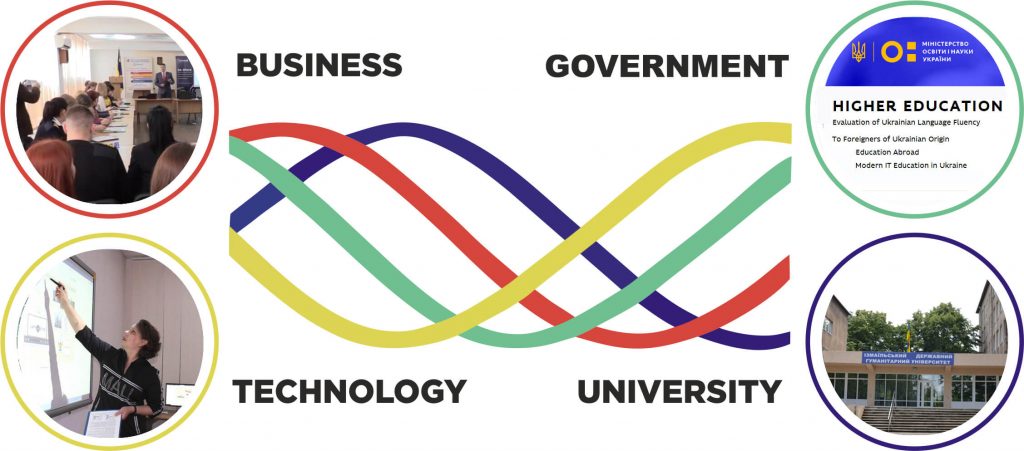
The student personnel department deals with student affairs .
Phone number: +38 (04841) 5-14-86.
The University pays great attention to work with degree-seeking students. Student personnel department works with student’s personal records, processes orders for admission, expulsion, renewal, transfer and other movement of degree-seeking students. The department prepares and issues transcripts of records for expelled students, general data on training to whom it may concern, gives an answer to the inquiries of law enforcement authorities, the Pension Fund of Ukraine and other institutions about the fact of training students at the University, prepares and issues student tickets, diplomas and diploma supplements for graduates, etc.
There are two dormitories with a total number of 720 places at ISUH. There are two types of dormitories: a block type (two rooms with a shared bathroom) and a corridor type. Students, post-graduate students and University staff live there. The housing fund of dormitories is proportionally divided between structural units, the provision of places is 100 % of the need.
The dormitories are in good technical condition, provided with central heating, water supply and other utilities. Rooms are for 2, 3, 4 people, there is all necessary sleeping equipment and furnishings in them.
In the dormitories of the corridor type bathrooms, washing rooms and kitchens are located on each floor at both ends of the corridor, shower rooms – on the first floor.
The buildings of dormitories are compactly located.
The procedure of residence hall check-in is determined by the “Provisions on the Residence Hall Check-in at ISUH”. Usually, the check-in begins on August 25. If you want to check-in it is necessary to arrive on the day specified in the check-in invitation.
Priority right to live in the hall of residence have: orphan students, students-half-orphans, children deprived of parental care, students from large families, students whose parents are disabled, low-income students and students having children. In addition to the above-mentioned persons, disabled children, children from remote areas, students with a high rating of education have privilege for living in the hall of residence.
All dormitories have qualified staff, scheduled maintenance and measures to improve living conditions. The student campus has a medical center, rooms for self-training, gyms, sports grounds, places to relax.
Residents of the dormitories have the ability to connect to the global Internet.
Student self-government bodies (student councils) are organized and function in each dormitory, their activities are coordinated by the trade union organization of students in close cooperation with the administration of the campus. The student councils are mainly occupied with actions for living conditions improvement, observe how students stick to the Rules of the internal order in the dormitory and organize student leisure activities.
The cost of living in a hall of residence consists of the cost of its maintenance and the cost of household services provided to residents living in the hostel. Depending on the living conditions, the monthly payment in the dormitories of the university is:
– in Dormitory 1 – 520 UAH per month;
– in Dormitory 2 – 480 UAH per month.
Set-meal is provided in the canteen of the academic building №1.]
Students who are enrolled out of the state budget and successfully pass the summative assessment get monthly scholarships in accordance with the Rules of awarding and paying scholarships in ISUH.
Students of ISUH who have outstanding achievements in learning and research work, in addition to academic and social grants, have the opportunity to receive academic and personal grants of the national level: grants awarded by President of Ukraine, Verkhovna Rada of Ukraine, the Cabinet of Ministers to the gifted students among the disabled students and social scholarship of the Verkhovna Rada Of Ukraine.
As the circumstance arises, students can apply for a one-time material support. Students who have outstanding results in learning, social work and sports, can receive a prize, usually in an amount equivalent to scholarship.
Medical service of the students of the University is carried out at the medical center located in Dormitory 2, where you can get all the complex of medical services, urgent and first medical care, carry out a preventive examination.
Medical care is free of charge.
In coordination with the local self-government bodies, free medical care was organized for students in the medical institutions of Izmail and Izmail district.
There is no insurance provided by ISUH.
The university buildings are equipped with special ramps for students with special needs. In the sports complex there are special health-improving groups for different categories of students.
The university has created and operates a system of distance education or learning according to student’s individual plan; there is a program of phased adaptation of a part of the training premises for the needs of this category of students. The University’s e-learning environment includes an educational portal based on the use of the Google Apps for Education Distance Learning Platform (domain-idguonline.net).
Material and technical support of educational activities
ISUH has a developed modern material and technical base that meets the needs of the educational process and research activities and is sufficient for further development of the university in the direction of integration into the European and world educational space.
The University has three academic buildings, a conference hall, sports grounds, gymnasium, an assembly hall, two libraries, a sufficient number of classrooms, laboratories, and training areas, which fully provide the entire scope of training.
Systematic and active work is under way to substantially improve the material and technical base of the educational process.
Academic buildings are in satisfactory condition and meet the sanitary-engineering and fire-fighting requirements.
The level of availability of equipment and devices for laboratories, classrooms and departments of the university meets the requirements of the 3-D level accreditation.
Educational and methodological provision of specialists training in each specialty includes:
Providing full, high-quality and operational library-bibliographic and informational services to students, post-graduate students, scientific and pedagogical staff, and university staff is carried out by the Library of ISUH. The tasks, content of work, interrelations, rights and responsibilities of the structural units of the library are determined by the Regulations on the library of ISUH.
New opportunities are opened for the students of Izmail State University of Humanities. In addition to modern subjects, additional professional courses and an eventful student life, students have a chance to improve their skills during internships at the best universities of the European Union. ISUH is a member of many international academic mobility projects (Erasmus +, etc.). This allows students to undergo short-term training, internships, research or practice in European countries. During short-term study, students receive a scholarship.
The University regularly organizes presentations and seminars, attracts representatives of information centers for educational programs. Students from the University and other higher education institutins of the city have an opportunity to get acquainted with the information on programs of international mobility and pass language testing on the basis of ISUH.
Izmail has a network of connections with many countries and regions of the country. You can get to the city by rail or motor transport (schedule of trains and vehicles).
The main building of Izmail State University of Humanities is located at 12, Repin Street, Izmail. For communicating with other areas of the city there is a public transport system (taxi, public taxi bus 19, public taxi bus 10, 18 etc.).
The study of the English, French, German, Romanian, Bulgarian languages is organized on the basis of the Center for Continuing Education of ISUH.
The goal of the Center is to realize the needs of the individual in intellectual, cultural and moral development, methodological and scientific activities and, above all, conducting courses for those who wish to learn the language and culture of our European neighbors.
Courses are designed for a wide range of students with different levels of training, from primary to secondary and higher levels, which include 1-4 year students, masters, postgraduate students, staff members, teachers, as well as secondary school students. Duration of courses depends on the students’ goal and can vary from the need and intensity of language learning.
The main areas of study are:
On the basis of ISUH, preparatory courses for successful external independent testing and admission to higher education institutions in basic humanitarian subjects have been organized.
Degree-seeking students of ISUH do their practical training and on-the-job training program at general education institutions and educational institutions, state and municipal institutions and public organizations aimed at social work with children and citizens, institutions of culture, institutions and enterprises of various forms of ownership, which carry out economic activity in the cities and districts of Odessa region, in different cities of Ukraine, abroad (the linguistic practice at Konstantin Pereslavsky University, the Constantine of Preslav University of Shumen (Bulgaria), at the St. Cyril and St. Methodius University of Veliko Tarnovo (Bulgaria), at the “Dunarea de Jos” University of Galati (Romania), at the “Danubius” University of Galati (Romania), etc.).
The University promotes a healthy lifestyle and physical education among students, organizes various sports events and competitions. At present, there are two gyms in the sports complex, where classes in Physical Culture are conducted; there are students’ sections for team sports.
Qualified trainer-instructors help degree-seeking students acquire a proper physical shape, engage them in classes where they can do 27 sports. Particularly popular among students are volleyball, basketball, football, table tennis, gymnastics, wrestling, aerobics, etc.
Annually competitions in many sports are held among scientific and pedagogical workers as well. The University has created all the conditions for the physical and spiritual development of the individual.
The educational work at ISUH is aimed at the versatile harmonious development of the student’s creative personality, the awareness of the social significance of the chosen profession, its necessity for society and personal self-fulfilment.
The cultural life of students is very diverse. The student team of ISUH is constantly participating in the city and regional competitions оf “Club of the Funny and Inventive People” and achieve successful results. Every year entertainment events such as “Mister of ISUH”, “MISS of ISUH”, “Student Initiation Ceremony”, New Year’s Day, St. Valentine’s Day, International Theatre Day, Day of Laughter are held. Each faculty brightly celebrates graduation ceremonies.
Students are annually involved in participation in the All-Ukrainian operations on the city and the University improvement: “Plant Your Tree”, “Green Spring”, “For Clean Environment”, “Tree of Peace” and others.
Student self-government bodies actively work at the University: student council, student union, student campus council, council of the scientific society of students and post-graduate students.
The main task of the organizations is to ensure decent conditions of study, residence and leisure of the degree-seeking students. They cooperate closely with the university administration in implementing educational and research programs, social and legal protection of students, development and implementation of targeted and special-purpose programs.
Student self-government members of ISUH take an active part in the British Councils training marathon within the framework of the Strengthening Academic Integrity in Ukraine Project (SAIUP). Coaches are representatives of the British Councils, participants of the Active Citizens project.
Also, degree-seeking students are involved in the training “Workshop of Social Projects” organized by the youth association “Hub Volunteer Service” with the assistance and support of “Impact Hub Odessa” and ISUH. The purpose of this event is to stimulate the youth of Danube Region, gain knowledge about the organization of activities aimed at improving the lives of the wider public, as well as understanding the importance of the social impact of youth in society, and so on.
Student newspapers “INversion” and “The Times” are constantly published at ISUH.
In order to implement the provisions and principles of the Bologna Declaration, Izmail State University of Humanities pays special attention to international cooperation and constantly expands and improves its work. During the implementation of the plan of international cooperation in the field of education, the University conducts a series of activities aimed at increasing its international status. In our conditions, it is important to choose the most optimal directions of international cooperation.
The university strategy implies:
To solve this, the goal tasks are defined for each structural unit and individual scientific schools and groups.
ISUH cooperates with more than 20 international and foreign organizations and higher educational establishments, among them Masaryk University in Brno (the Czech Republic), the Constantine of Preslav University of Shumen (Bulgaria), the St. Cyril and St. Methodius University of Veliko Tarnovo (Bulgaria), the Paisii Hilendarski University of Plovdiv Luben Karavelov Branch, the “Dunarea de Jos” University of Galati (Romania), the “Danubius” University of Galati (Romania), “1 Decembrie 1918” University (Romania), Moldavian State University (Moldova), Ion Creangă State Pedagogical University (Moldova), the Bogdan Petriceicu Hasdeu State University of Cahul (Moldova), The Alecu Russo Balti State University (Moldova), Comrat State University (Moldova), ABMS University Switzerland (Switzerland), the V.V. Vinogradov Russian Language Institute of the Russian Academy of Sciences, Institute of Russian Literature of the Russian Academy of Sciences (Pushkin House), Arzamas State Pedagogical Institute named after Haidar (Russian Federation), the Yaroslav-the-Wise Novgorod State University (Russian Federation), Taraz State Pedagogical Institute (Kazakhstan), the Museum “Carol I” of Braila (Romania).
According to the Law of Ukraine “On Access to Public Information”, public information is that which is printed or documented by any means and on any medium, which is received or created by the governmental bodies in the course of the fulfillment of the duties provided for by the current legislation or which is in the possession of the governmental bodies.
The request for public information is provided either verbally or in writing, during personal reception or by mail, fax, e-mail or telephone at the option of the requestor. Written request for public information is provided in arbitrary form.
The request for information should include:
According to Part 2 of Part 1, Part 3 of Art. 13 of the Law of Ukraine “On Access to Public Information”, the University as a legal entity financed from the State Budget is the manager of only the information concerning the use of budget funds.
Information requests (regarding the size of the scholarship, the number of months in the academic year) must be completed in accordance with the requirements of Art. 18 of the Law of Ukraine “On Protection of Personal Data” (in particular, it is necessary to specify the details of the document certifying the identity of the requestor).